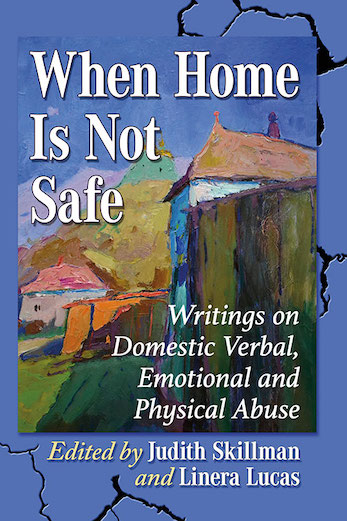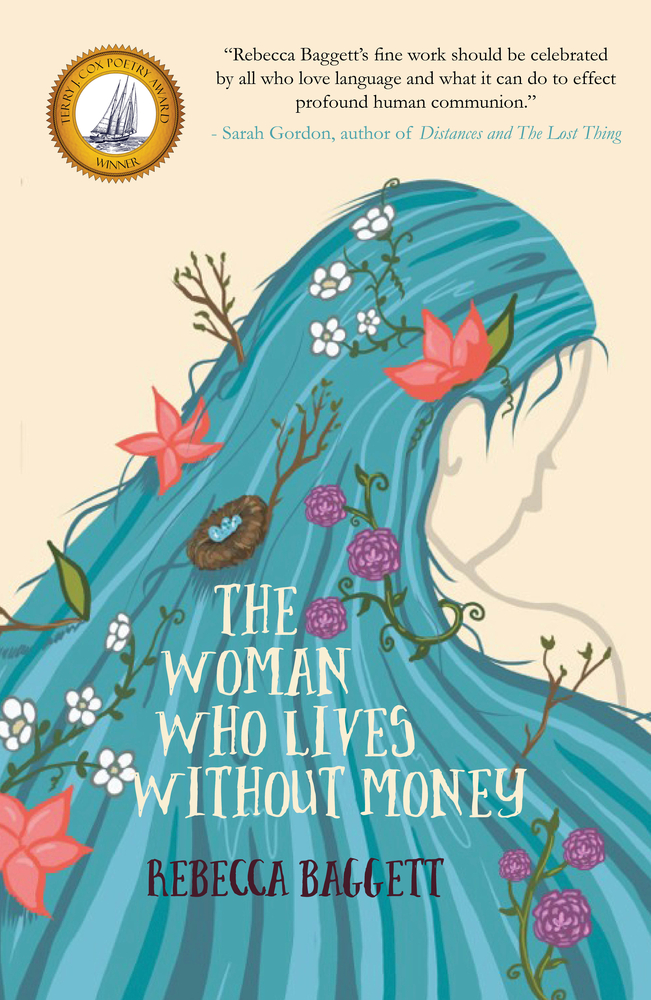Editor’s Note: This exchange is part of a series of brief interviews with emerging writers of recent or forthcoming books. If you enjoyed it, please visit other interviews in the I’ve Got Questions feature.
- What’s the title of your book? Fiction? Nonfiction? Poetry? Who is the publisher and what’s the publication date?
When Home Is Not Safe: Writings on Domestic Verbal, Emotional, and Physical Abuse, edited by Judith Skillman and Linera Lucas, is a nonfiction anthology. McFarland, a leading academic publisher, will release the book in September 2021.
- In a couple of sentences, what’s the book about?
When Home is Not Safe is an anthology of poetry and prose by those who have survived domestic abuse. It contains real incidents of verbal, emotional, and physical abuse, as well as true stories of those who left destructive and unsalvageable relationships. The beauty and truth of the language, as well as the honesty and courage on the page make this journey worthwhile.
- What’s the book’s genre (for fiction and nonfiction) or primary style (for poetry)?
The genre is Health & Wellness/Domestic Abuse.
- What’s the nicest thing anyone has said about the book so far?
When Home is Not Safe: Writings on Domestic Verbal, Emotional, and Physical Abuse brings a necessary voice to the silent and all-pervasive epidemic of domestic abuse among us. This is a powerful anthology—healing for the writer, eye-opening for the reader. As a therapist and a poet, I highly recommend this collection.
–Gayle Kaune MSW, LICSW, author, Noise From Stars
- What book or books is yours comparable to or a cross between? [Is your book like Moby Dick or maybe it’s more like Frankenstein meets Peter Pan?]
The high literary caliber of the poetry, memoir, and creative non-fiction set this anthology apart from self-help manuals and academic treatises on domestic abuse.
- Why this book? Why now?
In order to fix the serious problems of domestic abuse, we must first educate ourselves. Only then can we begin to repair the damage wrought by our patriarchal society and break the cycle of abuse.
- Other than writing this book, what’s the best job you’ve ever had?
Although editing this book was a public service and a labor of love, it was not an easy time. Reading so much material about domestic abuse brought on several episodes of PTSD. Fortunately, I knew what to do. I fled to my library, and then directly into the worlds of Jane Austen and Margery Sharp, whose great comic novels restored me.
- What do you want readers to take away from the book?
Even if you haven’t been hurt by domestic abuse, someone you know has and wishes they could tell you about it. Perhaps you are a therapist, teacher, academic, or social worker who wants to help those who are suffering. Or maybe you are in an abusive relationship and need to know that you are not alone. Others have felt as you do, but with knowledge, support, and the release of shame, victims can become survivors.
- What food and/or music do you associate with the book?
Hmmmm. How about a mashup of the Dies Irae from Mozart’s Requiem and Aretha Franklin singing RESPECT.
- What book(s) are you reading currently?
Ninth Street Women: Lee Krasner, Elaine de Kooning, Grace Hartigan, Joan Mitchell, and Helen Frankenthaler: Five Painters and the Movement That Changed Modern Art, by Mary Gabriel, 2018, Little, Brown & Co.
Learn more about Linera at her website.
Buy the book from the publisher, or Elliott Bay Book Company (free USPS Media Mail shipping in the US for orders over $20), Amazon, or Bookshop.org.



